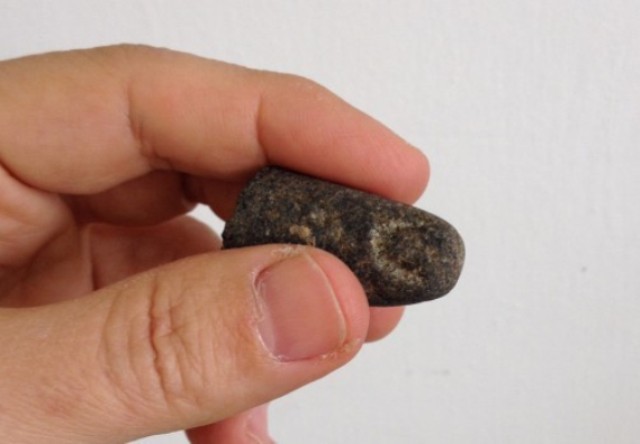A finger fragment from a statue of an Egyptian god or king was found in soil excavated from the Temple Mount, just ahead of Passover.
A finger fragment from a statue of an Egyptian god or king was found in soil excavated from the Temple Mount, Israel Hayom reported Monday, in fitting archaeology news for Passover.
Experts are currently analyzing the specimen, which apparently came from a statue originating in Egypt. A more thorough study needs to be conducted before it can be dated accurately. The soil in which the fragment was discovered was thrown into the Kidron Valley—which separates the Temple Mount from the nearby Mount of Olives—by the Jerusalem Islamic Waqf in 1999 after an illegal dig at the Temple Mount. The waqf, an Islamic religious trust, manages the edifices on and around the Al-Aqsa mosque.
The soil was gathered by archaeologists Dr. Gabriel Barkay and Zahi Dvira, who have been sifting the soil since 2004, discovering thousands of findings that shed light on thousands of years of history at the Temple Mount. The research is held under the academic auspices of the Institute of Archaeology at Bar-Ilan University and is financed by the Foundation for Archaeological Advancement in Israel.
“This is a broken piece of a life-sized figure of a person,” said Barkay, “carved in Egypt and brought to the land of Israel. It can be said with certainty that this is the little finger from the hand of a man, on which is also a fingernail. The statue was made of a hard black stone that originated in Egypt. The statue portrayed either a god or king. According to the type of black stone the statue is carved from, this is a statue that was brought from Egypt.”
The Temple Mount discovery comes after the recent news that the Temple Mount Sifting Project, an archaeological initiative to uncover rare artifacts buried in soil removed from the Jerusalem holy site in the 1990s, would be halted due to budget constraints. The sifting project is holding a fundraising campaign to avert its closure, while Prime Minister Benjamin Netanyahu has promised to help with funds.
By: JNS.org



